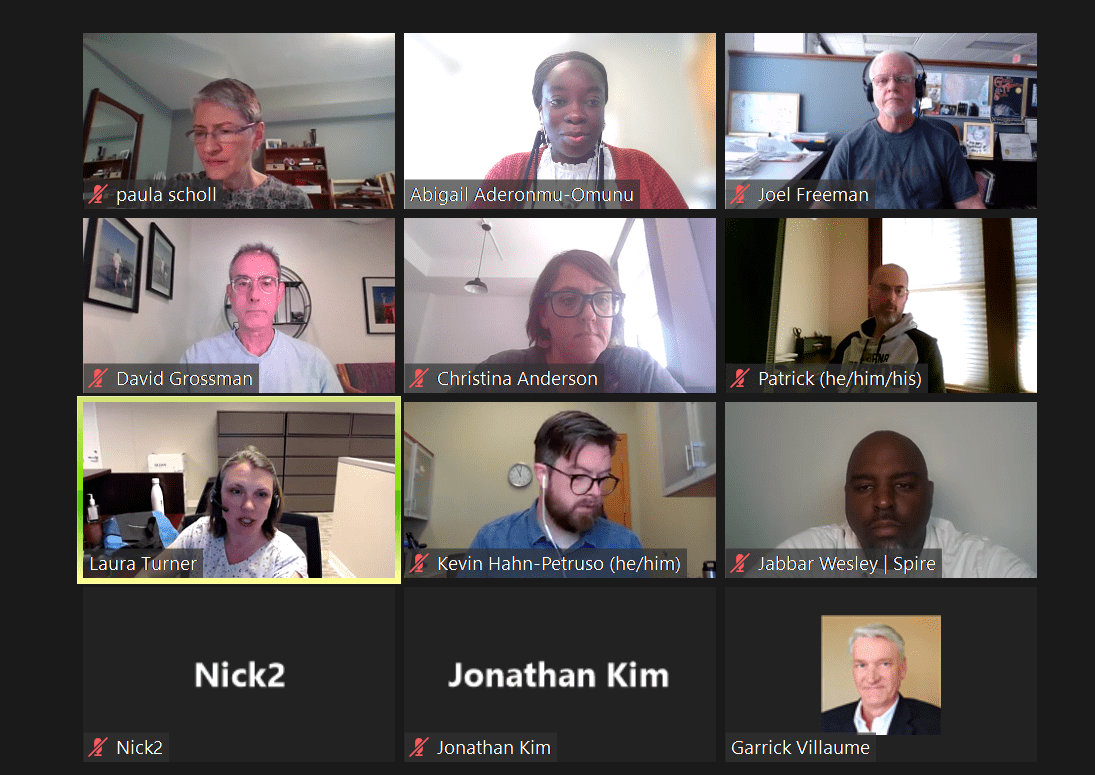The Midwest Climate Research Agenda aims to bridge the gap between research and practice, as well as listening to and understanding questions and challenges from practitioners and researchers. As we seek to identify key climate questions that will advance our understanding of climate impacts and solutions in the Midwest, we envision this process as a collaborative one involving cross-sectoral stakeholder engagement across the region. We see the work progressing in three phases.
Phase I – Gathering Insights
Phase I: Gathering Insights
- Completed: We launched an online portal and collected approximately 200 climate-related questions from researchers, practitioners, and community members across the Midwest.
- Focus Areas: Agriculture, Biodiversity & Ecosystems, Buildings & Transportation, Communities, Energy, and Human Health.

Phase II – Collaborative Refinement
In the second phase, we hosted a multi-sectoral workshop to review and narrow down the questions generated.
- Completed: Hosted virtual and in-person workshops in early 2023 with cross-sector stakeholders.
- Outcome: Synthesized and prioritized research questions to address the most pressing climate challenges in our region.
Phase III – Publication and Engagement
- Current Status: We are preparing to publish the refined research questions and engage with the broader community.
- Next Steps:
- Publication of Key Questions: Making the research questions accessible to foster collaboration.
- Stakeholder Engagement: Inviting researchers, policymakers, and practitioners to participate in addressing these questions.
- Current status: Focus on human health questions:
- Climate change profoundly impacts human health, and the Midwest faces unique challenges. Our research addresses critical issues such as:
- Health equity and resilience in underserved communities.
- Mental health impacts due to climate-induced stressors.
- Adaptation strategies for rural and agricultural communities.
- Reducing the healthcare sector’s environmental footprint.
- For additional information, contact MidwestClimateCollaborative@wustl.edu